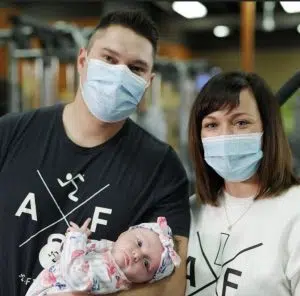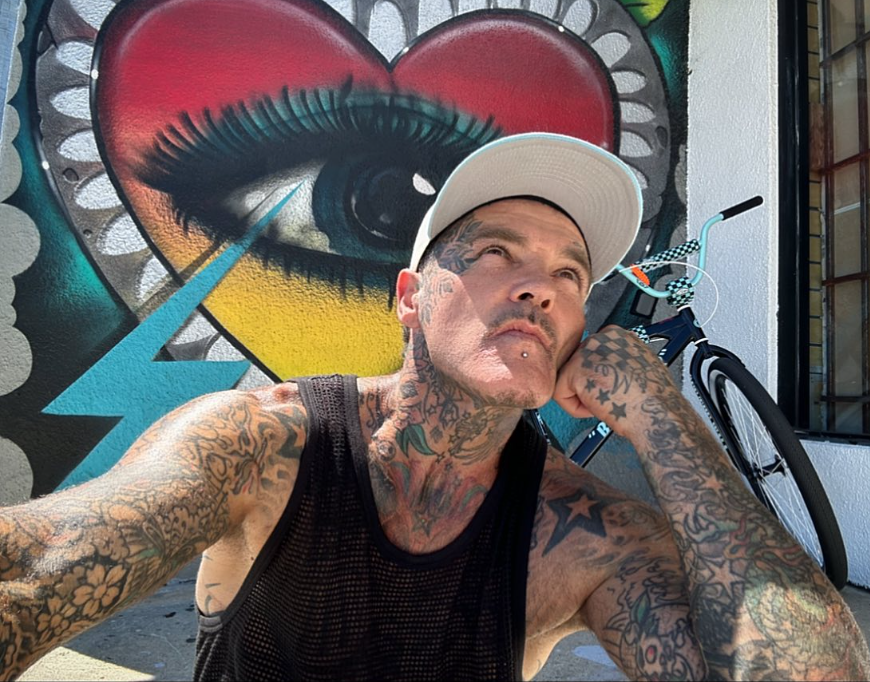As we take time this Wednesday, June 30 to listen and learn from Indigenous Peoples across Canada on “A Day to Listen”, one of many stories is that of Jake Sinclair.
Sinclair, 31, and his wife Kim have many accolades to their name, including owning the two Anytime Fitness facilities in Regina.
Sinclair was born and raised on the George Gordon First Nation, his wife on a farm near Raymore.
Life as a young business owner is challenging no matter your background, Sinclair agrees with that statement, but also acknowledges that there can, and have been extra challenges he’s faced as an Indigenous man in Canada growing a business and his personal resume, that includes separate business endeavors from Anytime Fitness, and a lengthy list of acknowledgements from the University of Regina.
“Starting off is definitely the hardest part, trying to get a credit for a business loan, trying to check off all the boxes that are required to be perceived as a business person, I think that’s where the biggest challenges were, trying to surpass expectations, but I think now that we’re there, the challenges have been kind of eliminated,” Sinclair said.
Being an Indigenous person, Sinclair is appreciative and optimistic that days like “A Day to Listen” will continue to spark progressive change, and a desire to learn.
He is also conscious of the fact that this is just one day, and that the conversations need to persist much longer than that.
“I think the step forward that we need to do is self-educate ourselves as well,” he said. “Go above and beyond on listening and go educate yourself, if you’re really into Canadian values I think the British North American Act, the Royal Proclamation, the Constitution, and the Indian Act are all documents you should read as a Canadian citizen, to see how they impact us today.”
With the discovery of 215 bodies at a former residential school site in Kamloops in May, followed by the shocking discovery of evidence of 751 unmarked graves at the former Marieval Residential School on the Cowessess First Nation in mid June, it means a time of great sadness, frustration and hope that things are changing, and will continue to change.
“You sit down with your family and you think, this could’ve been my daughter, this could’ve been my son taken away from me,” Sinclair said. “The residential school has impacts that are intergenerational, and the best way that I can describe it is like this, I had a friend, and he had a Hungarian accent. He got it from his dad, who got it from his grandfather, and his grandfather never spent a day in Hungary. That’s really a simple way to describe how these traumas are intergenerational,” Sinclair said.
Sinclair was young when he spent a brief time in a residential school himself.
There were 139 residential schools in Canada between 1831 and 1996 considered in the TRC. Sinclair said the one he attended on George Gordon First nation was the last to close in Canada.
There are as many as 1,300 other schools that were privately run by provinces, or religious denominations where Indigenous children were sent that could also be considered.
The Truth and Reconciliation Commission estimates that more than 4,100 children died while attending residential school.
A 40-60% mortality rate.
The stories shared on Wednesday may be distressing, especially to survivors of residential schools. The Indian Residential Schools Crisis Line is available 24-hours a day for anyone experiencing pain or distress as a result of his or her residential school experience. Call 1-866-925-4419 for support.
More than 450 radio stations across Canada are taking part Wednesday in “A Day to Listen”.
Full interview with Jake Sinclair below:










